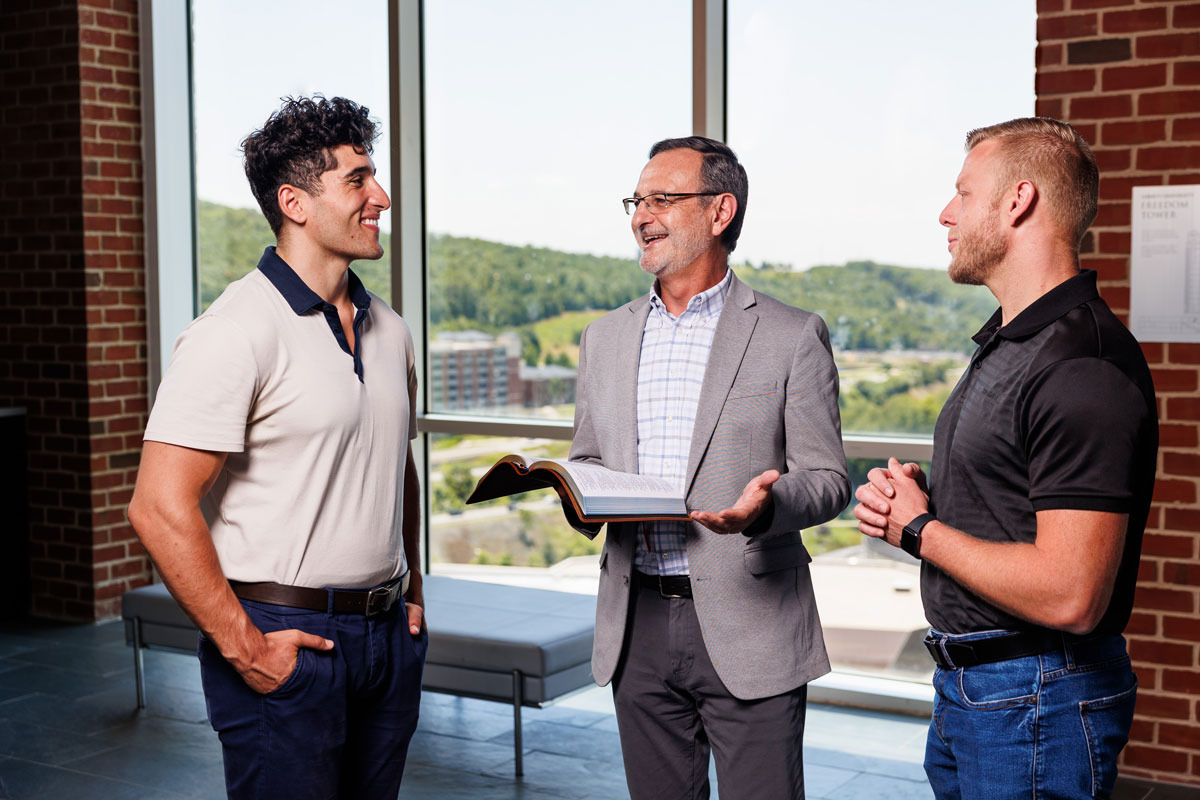Search News Archives
Filter News Articles
Additional Navigation
Former USS Cole commander and terror attack survivor shares lessons from his storied career
September 9, 2022 : By Logan Smith - Office of Communications & Public Engagement
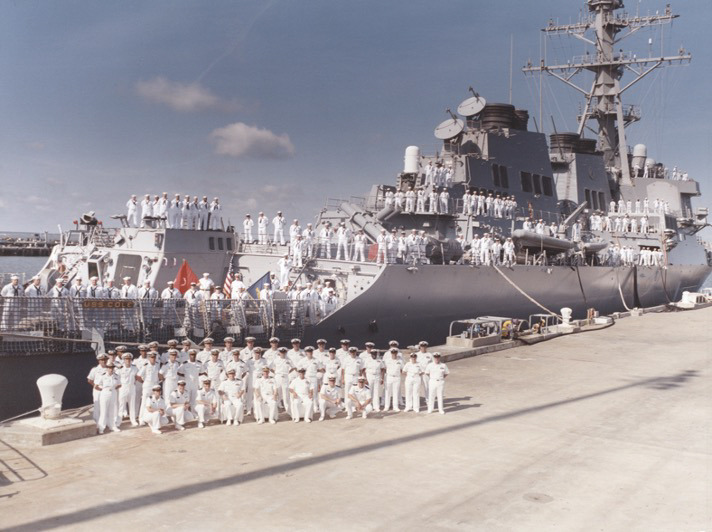
There was nothing out of the ordinary when the USS Cole, a $1 billion guided missile destroyer, anchored at the port of Aden, Yemen, on Oct. 12, 2000, for its routine fuel stop.
With 250,000 gallons taking several hours to replenish, the crew took a break for lunch, and Commander Kirk Lippold returned to his office to diligently tackle a stack of paperwork.
All was quiet. Then, at 11:18 a.m., a thunderous, forceful explosion nearly knocked Lippold out of his seat. In that alarming moment, lights flickered out, ceiling tiles dislodged, and a staunch odor of dust, fuel, and metallic debris crept into the senses.
“You could feel all 505 feet and 8,400 tons of guided missile destroyer suddenly and violently thrust up and to the right,” Lippold told government students at Liberty University last week. “We seemed to hang for a second, then slide back down into the water, rocking from side to side.”
Instinctively, several crew members assumed the blast indicated a major fuel explosion. But Lippold had a horrendous suspicion: an act of terrorism.
Had the blast been fuel-related, it would have tossed the ship in the opposite direction, to the left, not toward open harbor water.

Assessing the damage only confirmed Lippold’s foreboding belief. A wall of mangled stainless steel shoved toward the starboard side took out multiple critical rooms, crushing, trapping, and killing sailors. A spray pattern of explosion residue painted the ship’s exterior, which circled a gaping 40-by-40-foot hole.
“At this point, the USS Cole was in trouble,” Lippold said. “We knew we were feeling our ship sink beneath our feet.”
“One never knows how the hand of Providence is going to guide your life,” Lippold said. “Clearly that day, I felt a presence with me that allowed me to stay calm, stay focused, and be able to make the best decisions possible to save my ship and save as many lives as possible. And there were some tough decisions that were made that day.”
The blast left much of the inside completely unrecognizable. But with Lippold’s training, and the extensive preparation of the entire crew, they set into action.
The Port of Aden froze all harbor movements, local hospitals were notified, and rescue boats were prepared to transport the injured.
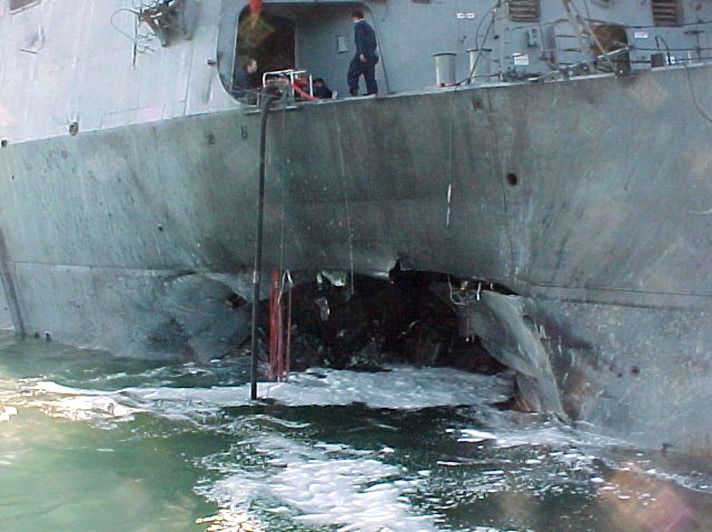
The tragic events of that day resulted in 17 dead and 37 injured. Forensic evidence revealed that al-Qaeda, the terrorist organization responsible for the 9/11 attacks a year later, orchestrated two suicide bombers to attack the USS Cole. With amazing heroics, Lippold and his crew skillfully executed time-urgent measures to save the ship.
“I was the Captain at the time, but my crew are the heroes that stepped into the breach, ran toward the danger, and saved that ship,” he said.
Lippold’s visit to Liberty marked the first of many Helms School of Government guest lecture visits this school year. Each semester, the School of Government hosts a full lineup of real-world professionals with robust experience in public policy, military service, and other areas of government who share their personal career journeys, educating students on their field and inspiring them to live out the Christian faith in their future workplaces.
Lippold shared his story to multiple classrooms. He spent a few minutes after each class answering questions about his experience commanding the USS Cole, overcoming adversity, and his time in the Navy.
“The students are sharp, engaged, and clearly energized, and they want to learn,” Lippold said. “They’re being given a wonderful opportunity to learn and grow, and then go out and make a difference in the future of our nation. An education is merely a starting point to learn. All this is giving you is the background material and knowledge for you to go out and begin to experience the world.”
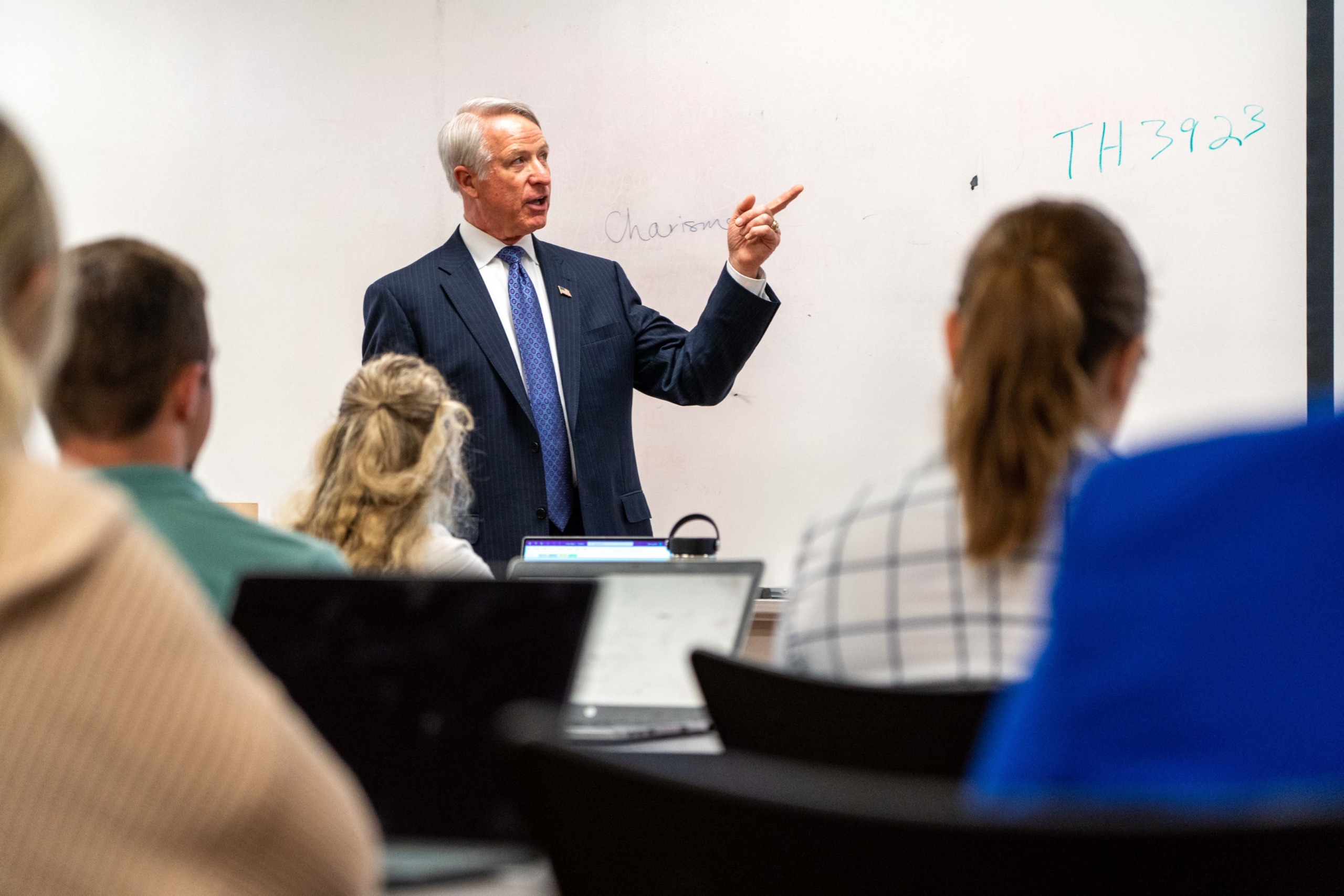
Lippold spoke to the significance of training students for jobs in international relations.
“There is no such thing as a non-state terrorist organization,” he said. “All of them have state sponsors somewhere that give them the ability to train, to recruit, to finance, to plan, and to conduct terrorist operations worldwide. This is why international relations is so important, because how we engage as a government with other countries makes a difference in how we keep our nation safe.”
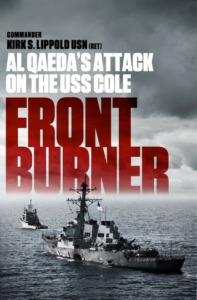 Today, Lippold is the president of Lippold Strategies, LLC, where he leverages his experience to inspire businesses and organizations on the tenets of leadership and fortitude. He has appeared on FOX News and other news networks and is the author of “Front Burner: Al Qaeda’s Attack on the USS Cole.”
Today, Lippold is the president of Lippold Strategies, LLC, where he leverages his experience to inspire businesses and organizations on the tenets of leadership and fortitude. He has appeared on FOX News and other news networks and is the author of “Front Burner: Al Qaeda’s Attack on the USS Cole.”
Additional guests this semester will include former Vice President Mike Pence’s Chief of Staff Marc Short, former Deputy Assistant to the President and Senior Director of the National Security Council Robert Greenway, and former Principal Executive in the Office of the Director of National Intelligence Neil Wiley.

